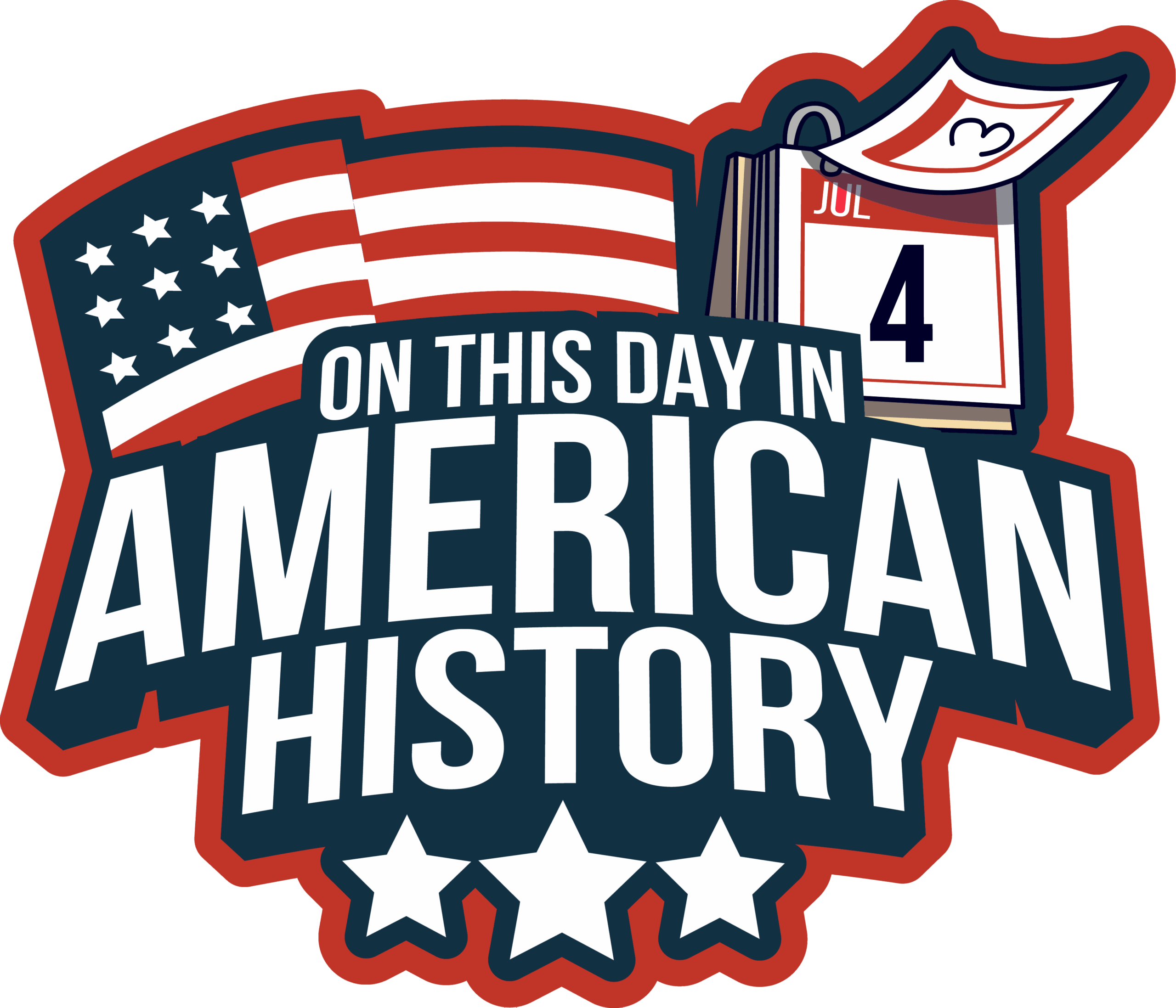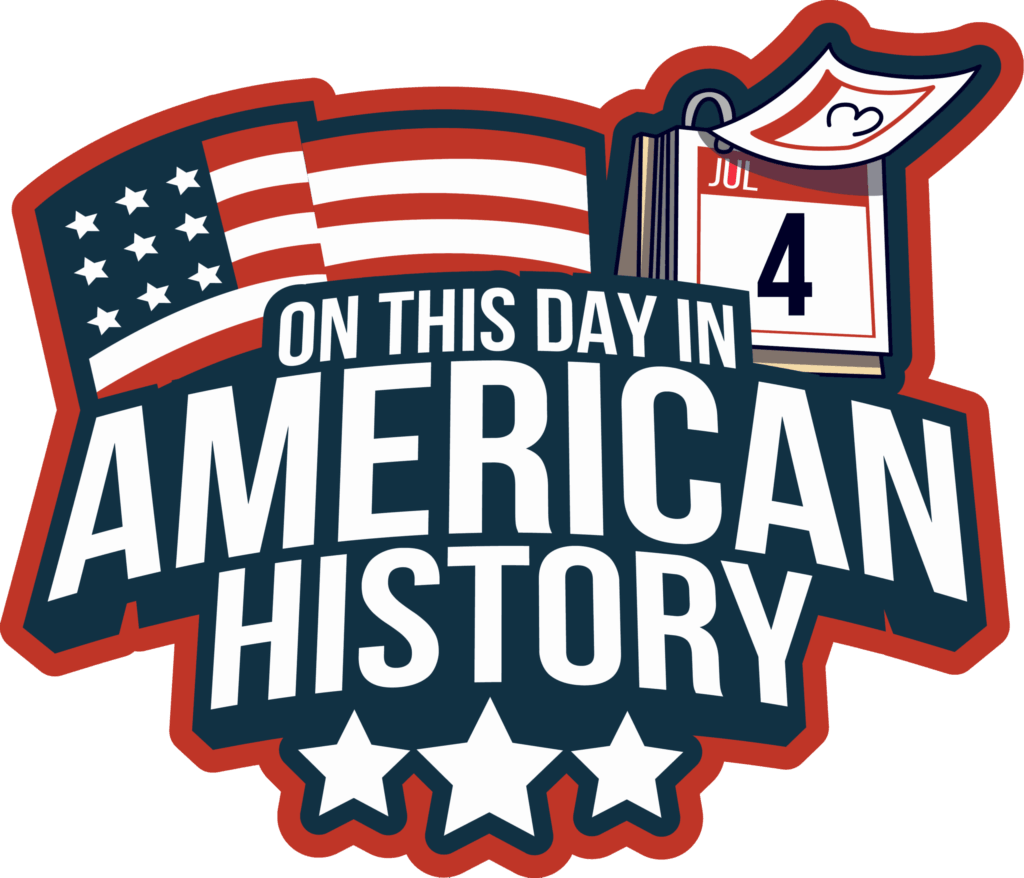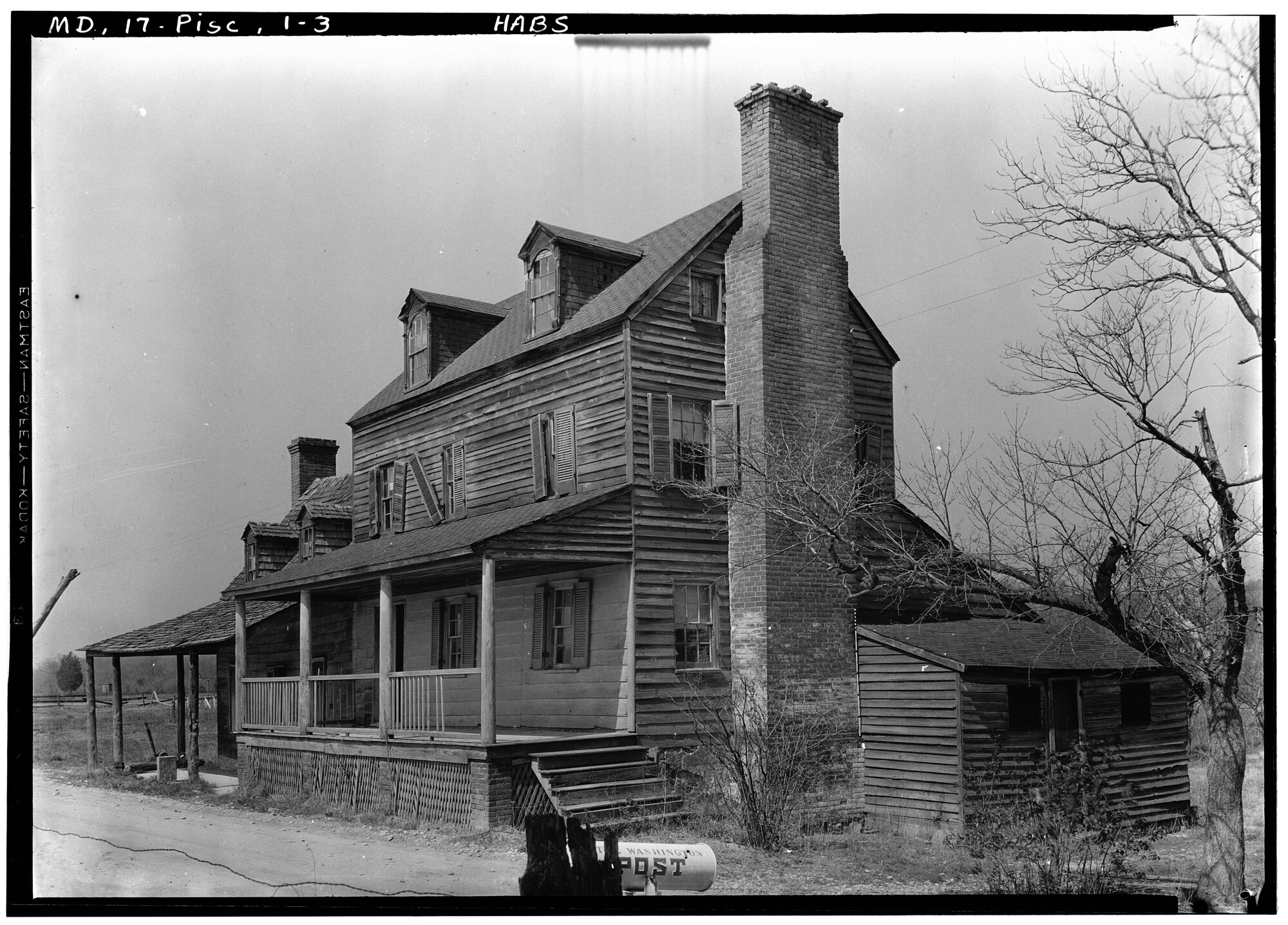
A photograph of the Piscataway Tavern in Maryland that was taken on April 14, 1936.
The Piscataway Tavern was built around 1750 and boasts a vibrant history, serving as a bustling social hub during the 18th century. It welcomed both travelers and locals, playing a vital role in the community by providing a venue for conversations, trade, and even political meetings. Its contributions to the social and economic fabric of Prince George’s County likely shaped the dynamics of the era.
Image via Wikimedia Commons, public domain in The United States
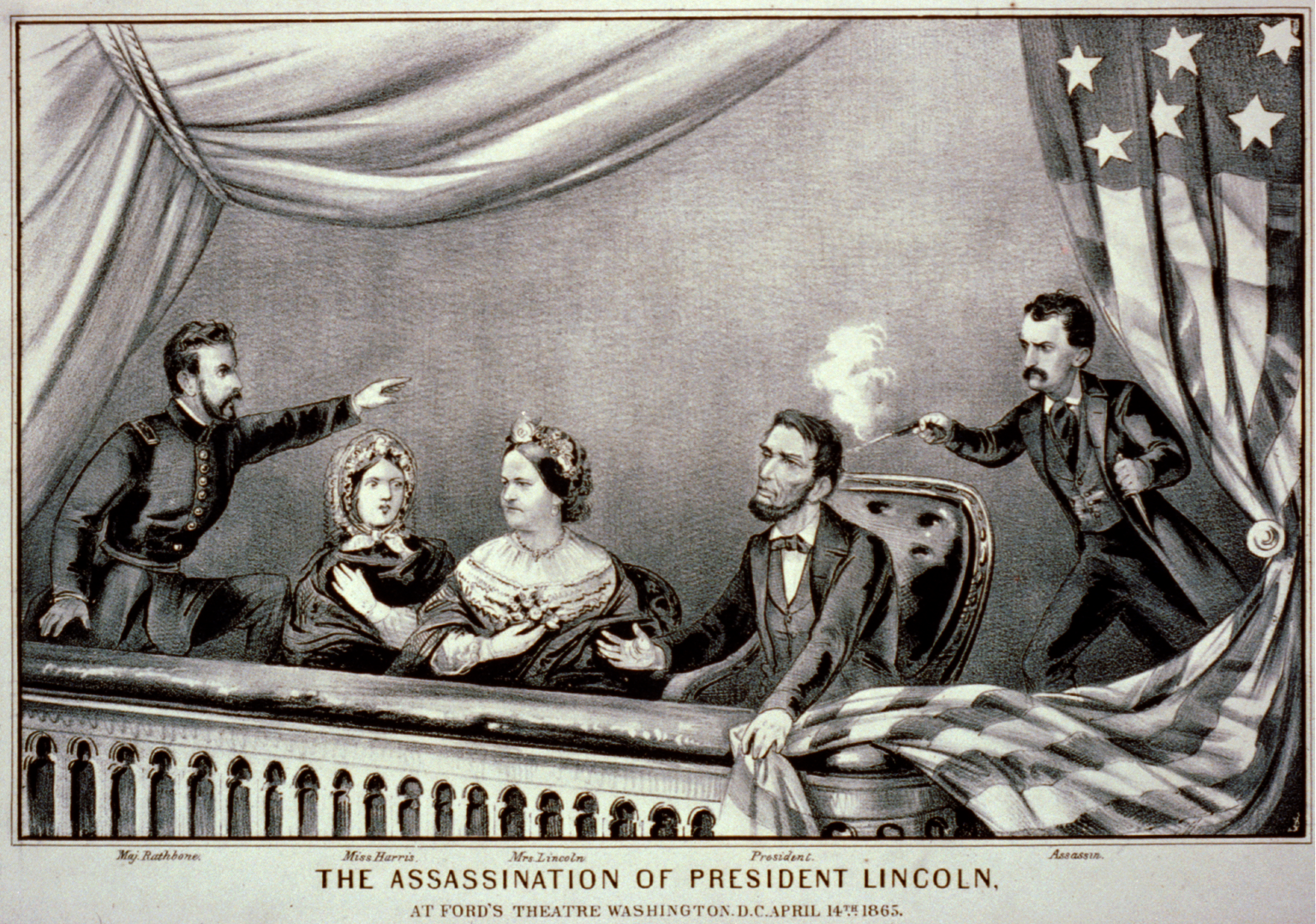
April 14, 1865
“In lieu of General and Mrs. Grant, President Lincoln had taken Major Rathbone and Miss Harris, the step-son and daughter of Senator Harris, of New York, into the Presidential party. On reaching the theatre at a somewhat late hour, and after the play had commenced, as soon as the presence of the President became known, the actors stopped playing, the band struck up “Hail to the Chief,” and the audience rose and received him with vociferous cheering. The party proceeded along the rear of the dress circle, and entered the box that had been prepared for them, the President taking the rocking chair that had been placed there for him on the left of the box, and nearest to the audience, about four feet from the door of entrance to the box. Major Rathbone and the ladies found seats on the President’s right. During this time the conspirators were on the alert, scanning the situation, passing about so as to keep up a communication with each other, in preparation for their work. Booth had arranged with Payne to assassinate Secretary Seward at the same time that he would assassinate the President; and no doubt had planned for Payne, after accomplishing his task, to join him and Herold in their flight, crossing the Eastern Branch at the Navy Yard bridge, and then to pass down through Maryland and cross the Potomac, at a selected point, into Virginia, where they might consider themselves as being safe amongst their friends. Secretary Seward was known to have received severe injuries from the upsetting of his carriage, and to be lying in a critical condition under the care of Dr. Verdi. Booth had planned to take advantage of this circumstance for gaining admittance for Payne into the sick chamber, where, by springing with the ferocity of a tiger upon the sick man, he might make quick work in dispatching him with his dagger. To this end he had prepared a package rolled up in paper, and had schooled Payne in the artifice, teaching him to represent himself as having been sent by Dr. Verdi with this package of medicine, which it was necessary he should deliver in person, as he had important verbal directions as to the manner of its use, which required him to see the Secretary. About ten o’clock Booth rode up the alley back of the theatre where he had been accustomed to keep his horse, and having reached the rear entrance, called for Ned three times, each time a little louder than before. At the third call Ned Spangler answered to his summons by appearing at the door. Booth’s first salutation was in the form of a question: “Ned, you will help me all you can, won’t you?” To which Spangler replied, ” Oh, yes!” Booth then requested him to send “Peanuts” (a boy employed about the theatre), to hold his horse. Spangler gave the boy orders to do this, and upon the boy making the objection that he might be out of place at the time he had a duty to per form, Spangler bade him go, saying that he would stand responsible for him. The boy then took the reins, and held the horse for about half an hour, until Booth returned to reward him with a curse and a kick, as he jerked the rein from him preparatory to remounting for his flight. After entering the theatre, Booth passed rapidly across the stage, glancing at the box occupied by his intended victim, and looking up his accomplices, he passed out of the front door on to the walk where he was met by two of his fellow conspirators. One of these was a low, villainous-looking fellow, whilst the other was a very neatly-dressed man. Booth held a private conference with these by the door where he and the vulgar-looking fellow had stationed themselves. The neatly-dressed man crossed the walk to the rear of the President’s carriage and peeped into it. One of the witnesses, who was sitting on the platform in front of the theatre, had his attention arrested by the manner and conduct of these men, and so watched them very closely. It was at the close of the second act that Booth and his two fellow conspirators appeared at the door. Booth said, “I think he will come down now”; and they alligned themselves to await his coming. Their communications with each other were in whispered tones. Finding that the President would remain until the close of the play, they then began to prepare to assassinate him in the theatre. The neatly-dressed man called the time three times in succession at short intervals, each time a little louder than before. Booth now entered the saloon, took a drink of whiskey, and then went at once into the theatre. He passed quickly along next to the wall behind the chairs, and having reached a point near the door that led to the passage behind the box, he stopped, took a small pack of visiting cards from his pocket, selected one and replaced the others; stood a second with it in his hand, and then showed it to the President’s messenger, who was sitting just below him, and then, without waiting, passed through the door from the lobby into the passage, closing and barring it after him. Taking a hasty, but careful, look through the hole which he had had made in the door for the purpose of assuring himself of the President’s position, and cocking his pistol and with his finger on the trigger, he pulled open the door, and stealthily entered the box, where he stood right behind and within three feet of the President. The play had advanced to the second scene of the third act, and whilst the audience was intensely interested Booth fired the fatal shot the ball penetrating the skull on the back of the left side of the head, inflicting a wound in the brain (the ball passing entirely through and lodging behind the right eye), of which he died at about half-past seven o clock on the morning of the fifteenth. He was unconscious from the moment he was struck until his spirit passed from earth. An unspeakable calm settled on that remarkable face, leaving the impress of a happy soul on the casket it had left behind. Thus died the man who said, “Senator Douglass says he don’t care whether slavery is voted up, or voted down; but God cares, and humanity cares, and I care.” As soon as Booth had fired his pistol, and was satisfied that his end was accomplished, he cried out, “Revenge for the South!” and throwing his pistol down, he took his dagger in his right hand, and placed his left hand on the balustrade preparatory to his leap of twelve feet to the stage. Just at this moment Major Rathbone sprang forward and tried to catch him. In this he failed, but received a severe cut in his arm from a back-handed thrust of Booth’s dagger. Time was everything now to the assassin. He must make good his escape whilst the audience stood dazed, and before it had time to comprehend clearly what had happened. With his left hand on the railing, he boldly leaped from the box to the stage. The front of the box had been draped for the occasion with the American flag, which was stretched across its front, and reached down nearly or quite to the floor. In the descent, Booth’s spur caught in the flag, tearing out a piece which he dragged nearly half way across the stage. The flag, however, was avenged for this double insult which he had put upon it; for by this entanglement his descent was deflected, causing him to strike the stage obliquely, and partially to fall, thus fracturing the fibula of his left leg, on account of which injury his flight was impeded, and his permanent escape made impossible. As he recovered himself from his partial fall and started to run across the stage with his dagger brandished aloft, he cried out in a theatrical tone, “Sic semper tyrannis!” and quickly passed out at a little back door opening into the alley where he had left his horse, and, though closely pursued, succeeded in mounting, and rode rapidly away.”
From: Assassination of Lincoln; a history of the great conspiracy: trial of the conspirators by a military commission and a review of the trial of John H. Surratt by T. M. Harris
published in 1892
https://archive.org/details/assasinationlinc00harrrich/page/36/mode/1up?view=theater
(source says not in copyright)
Image via Wikimedia Commons, public domain in The United States
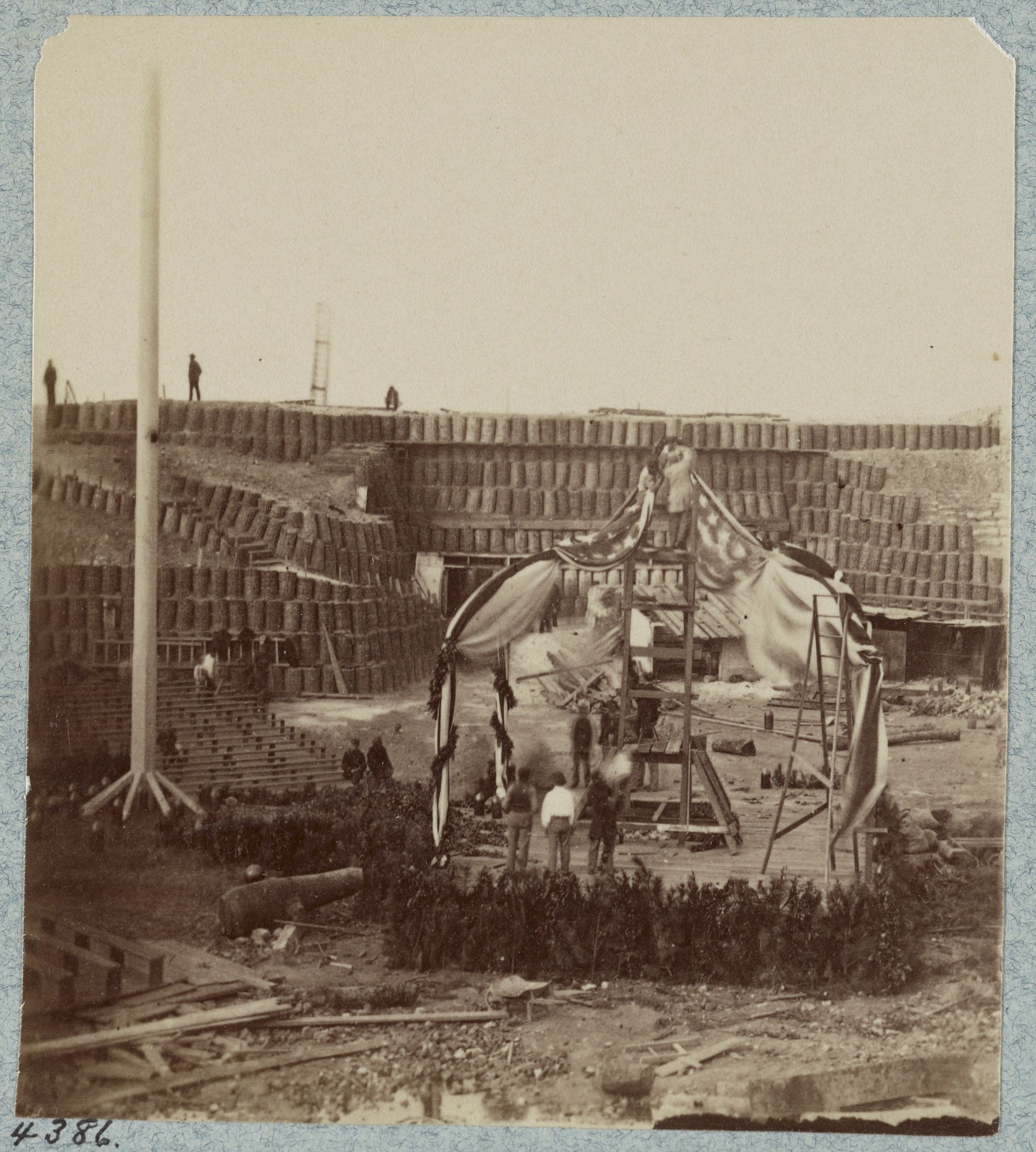
“View of set up for raising the old flag at Fort Sumter, April 14, 1865”
from LOC via Wikimedia Commons, public domain
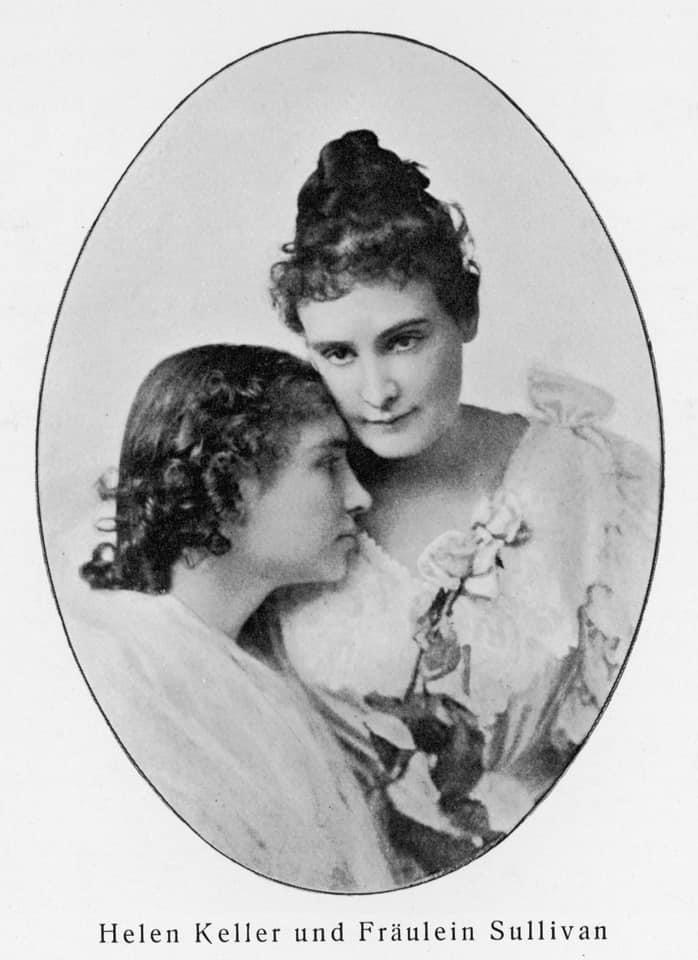
Anne Sullivan was born on April 14, 1866 in
Feeding Hills, Agawam, Massachusetts.
She met Helen Keller when she was 21 and would spend nearly 5 decades (the rest of her life) with her.
Image via Alamy
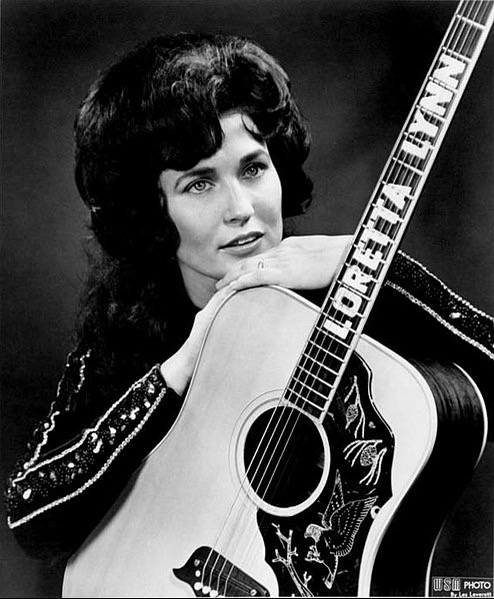
Born April 14, 1932 in Butcher Hollow, Kentucky singer-songwriter Loretta Lynn released 60 studio albums in her long career, ten of them with Conway Twitty. Patsy Cline was both her friend and mentor. Loretta is shown here in 1965, five years before her autobiographical hit “Coal Miner’s Daughter.”
Image via Wikimedia Commons, no known copyright, public domain in the US.
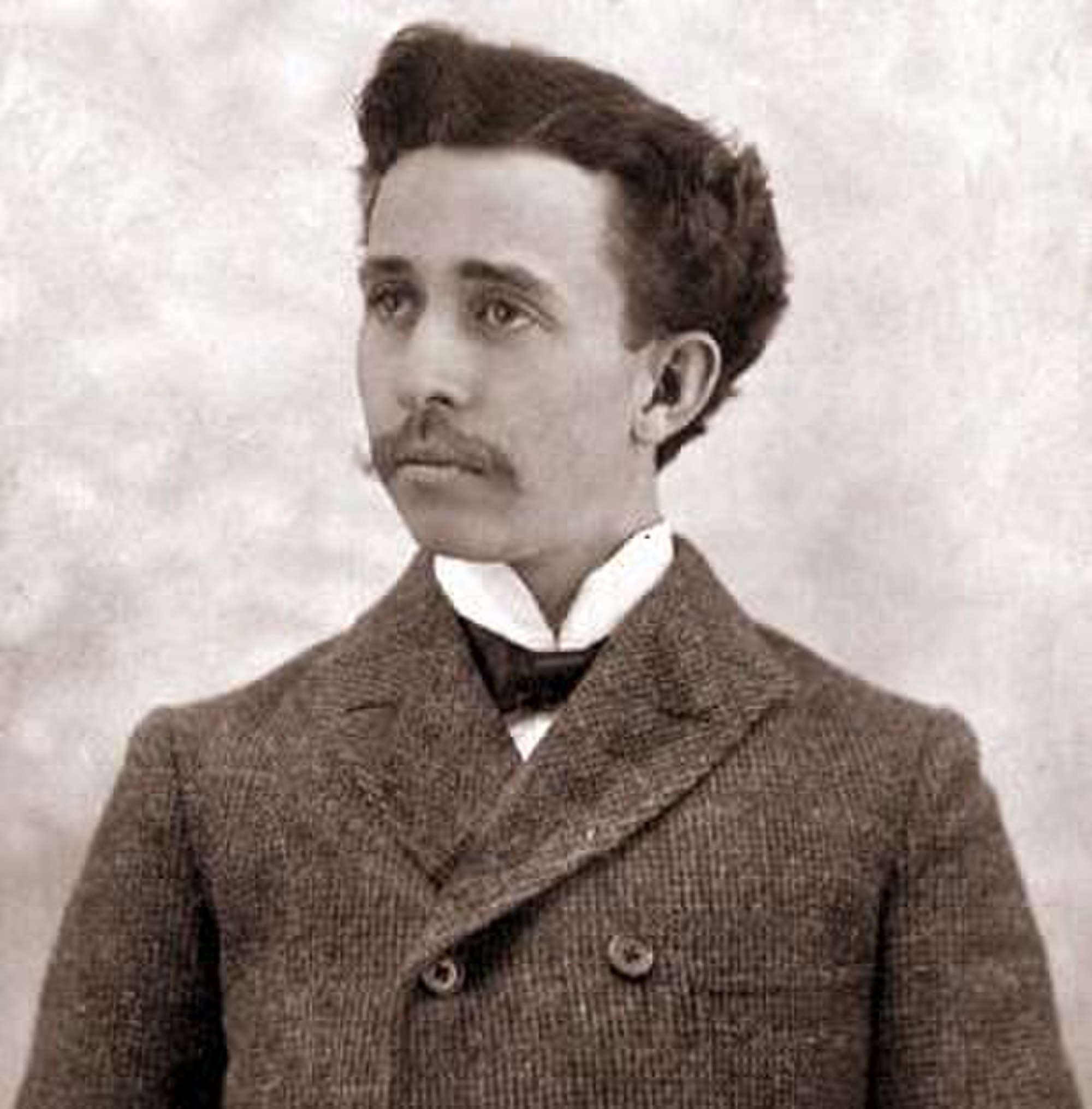
On today’s date April 14, 1902: James Cash Penney became an owner of a new Golden Rule Store in Kemmerer, Wyoming. A few years later the store moved to an adjacent corner building for expansion. In 1913, it became the very first J.C. Penney store.
Photo: James Cash Penney circa 1902 [Public domain], via Wikimedia Commons
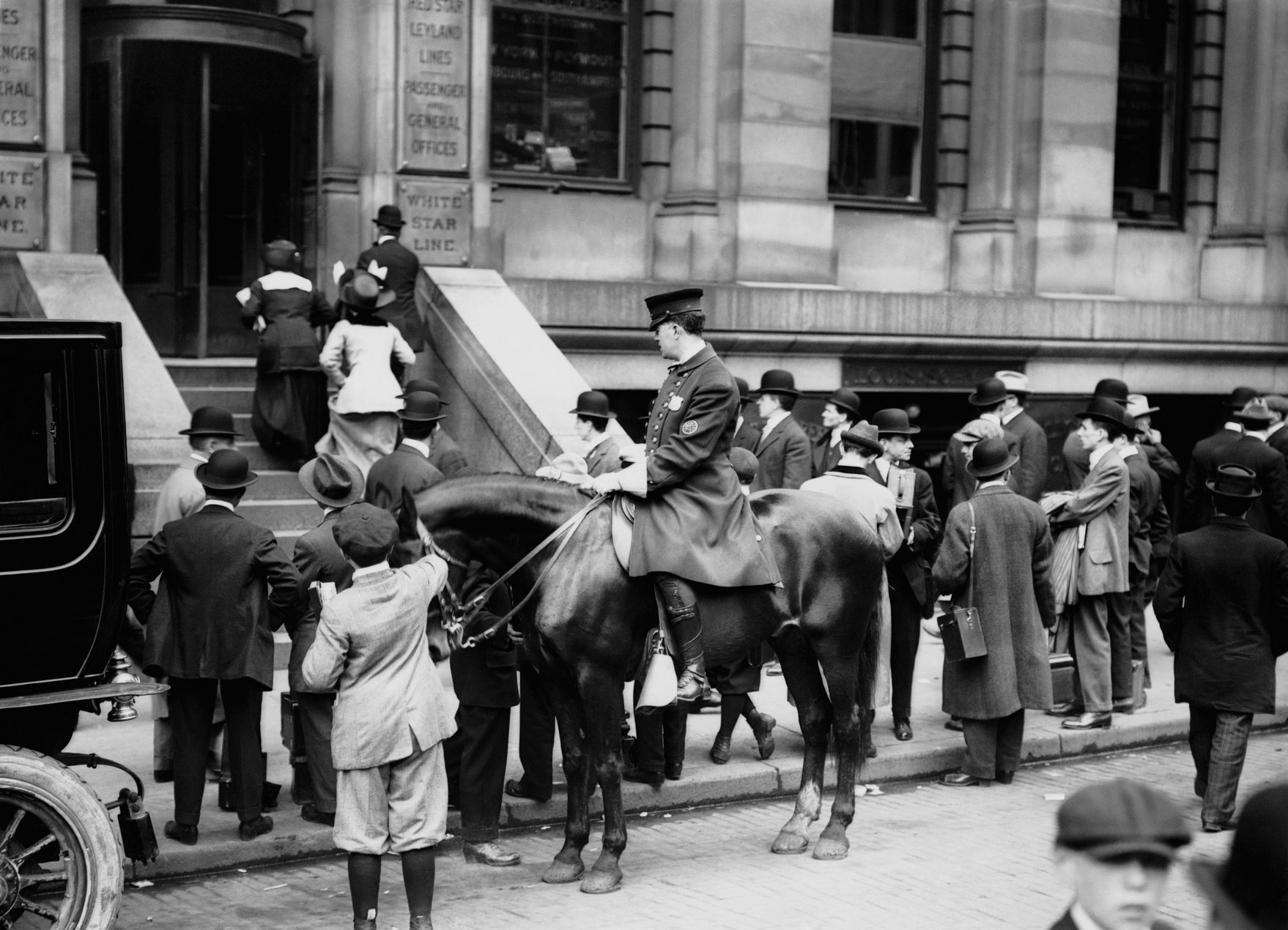
A mounted police officer patrols outside the White Star Line offices in New York as crowds gather to await news following the Titanic disaster in 1912. RMS Titanic, owned by White Star, sank with the loss of more than 1,500 lives after striking an iceberg on April 14 during its maiden voyage from Southampton to New York City.
via Alamy
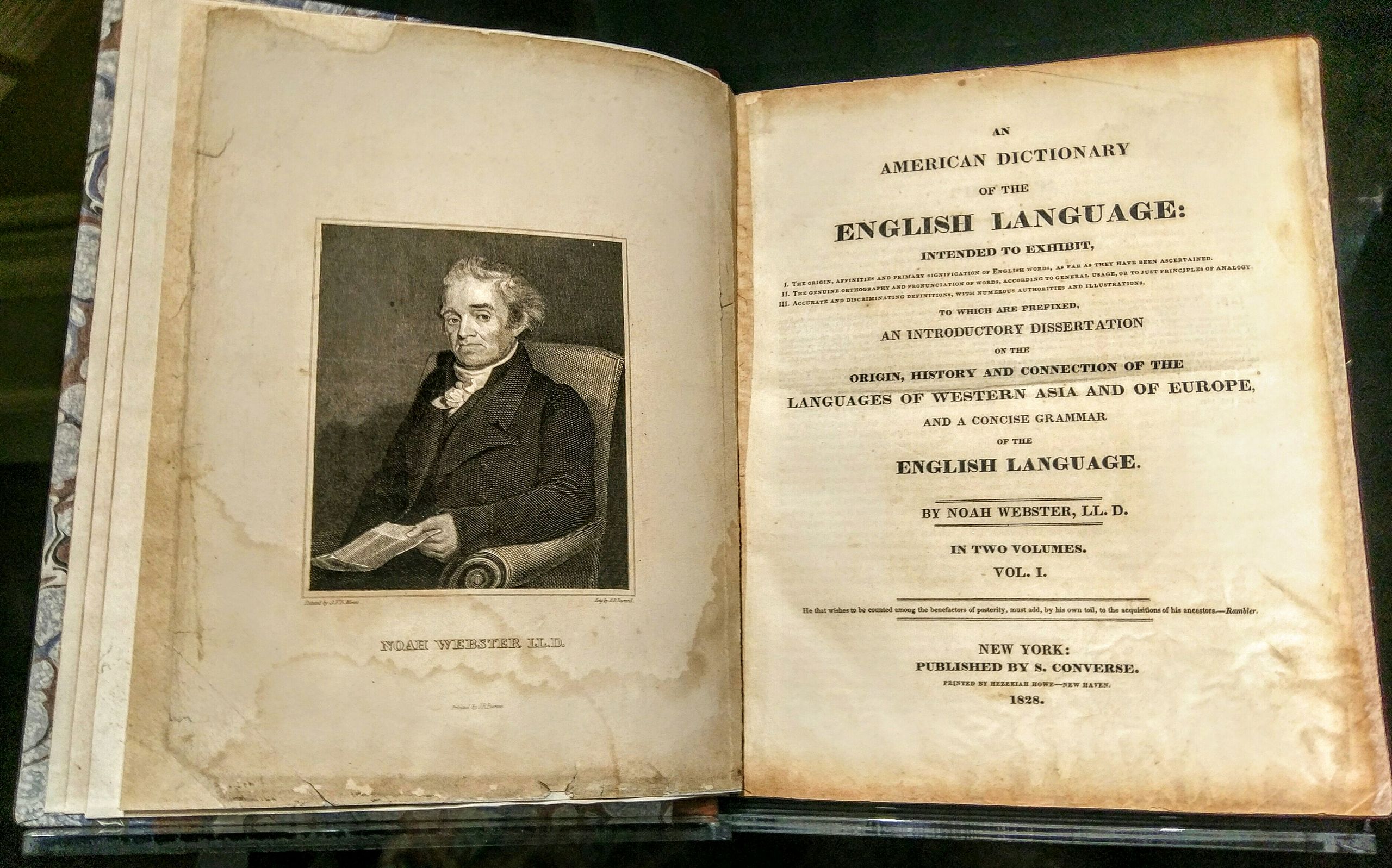
On April 14, 1828, Noah Webster published his American Dictionary of The English Language
How many entries were in Noah Webster’s first edition of the American Dictionary of the English Language when it was published in 1828?
Answer: 70,000
Image: Title page of Noah Webster’s 1828 edition of the American Dictionary of the English Language from Cullen328 via Wikimedia Commons, CC BY-SA 3.0
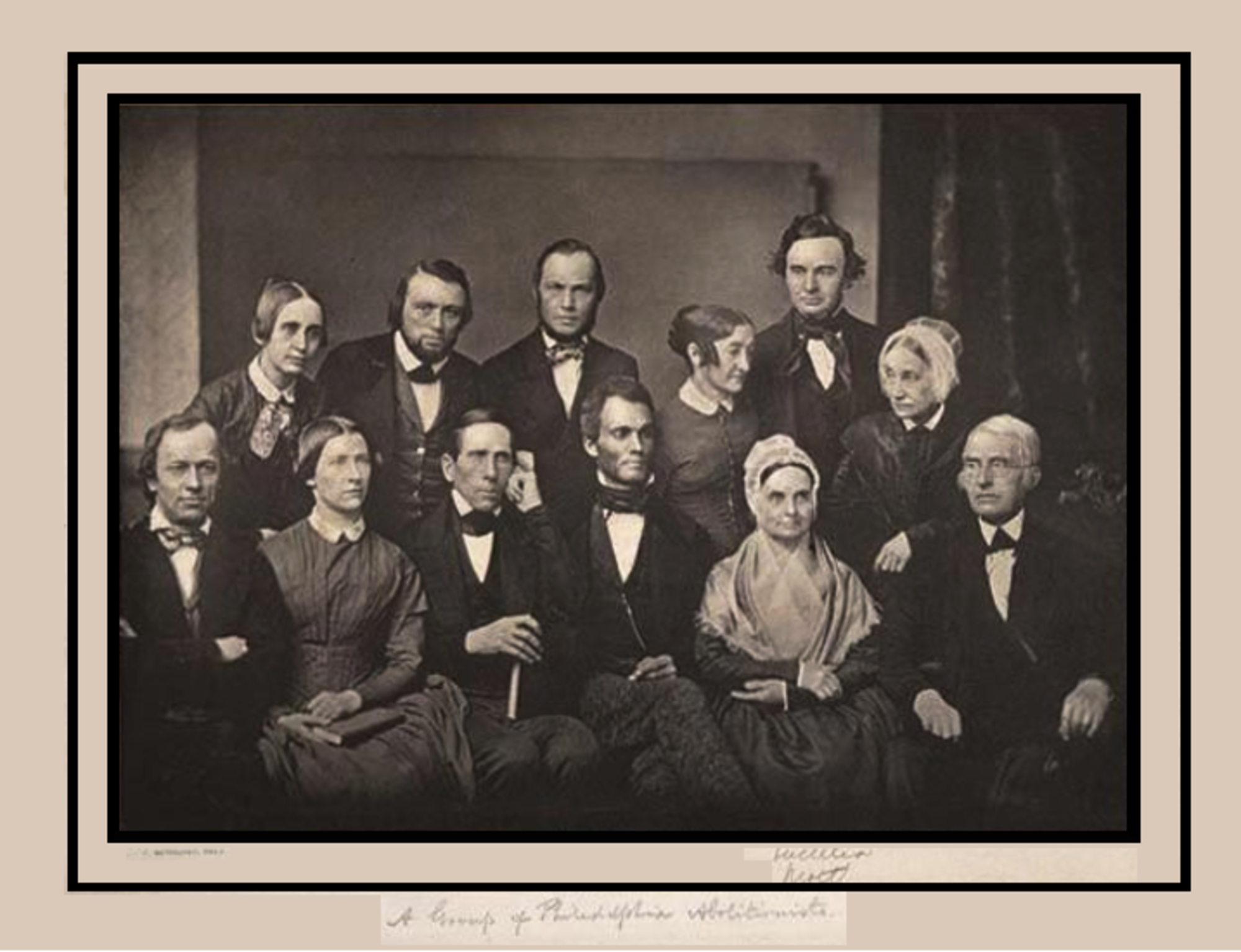
Photograph of a Group of Philadelphia Abolitionists with Lucretia Mott, from 1851
The first Abolition society in America was founded in Philadelphia on April 14, 1775. It eventually became known as the Pennsylvania Abolition Society. Ten years after the society’s establishment, Benjamin Franklin became its President.
Image via Wikimedia Commons, CC BY SA 4.0
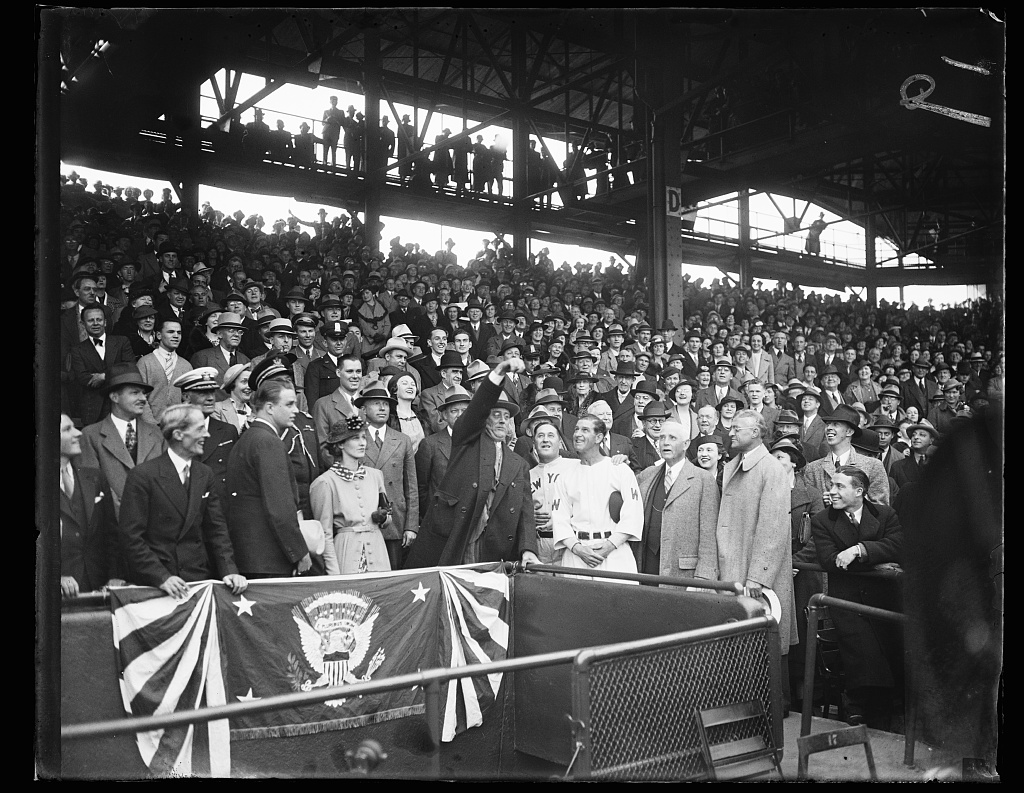
FDR throwing out the first ball of the 1936 baseball season on April 14th of that year
Exactly 26 years earlier, on April 14, 1910, William Howard Taft became the first U.S. President to throw out a ceremonial first pitch.
Image via LOC, no known restrictions
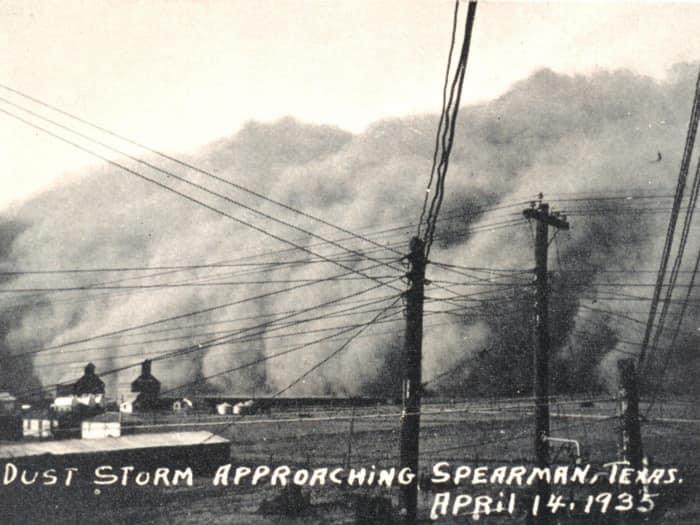
View of the dust storm approaching Spearman, Texas on April 14, 1935
via Wikimedia Commons, public domain
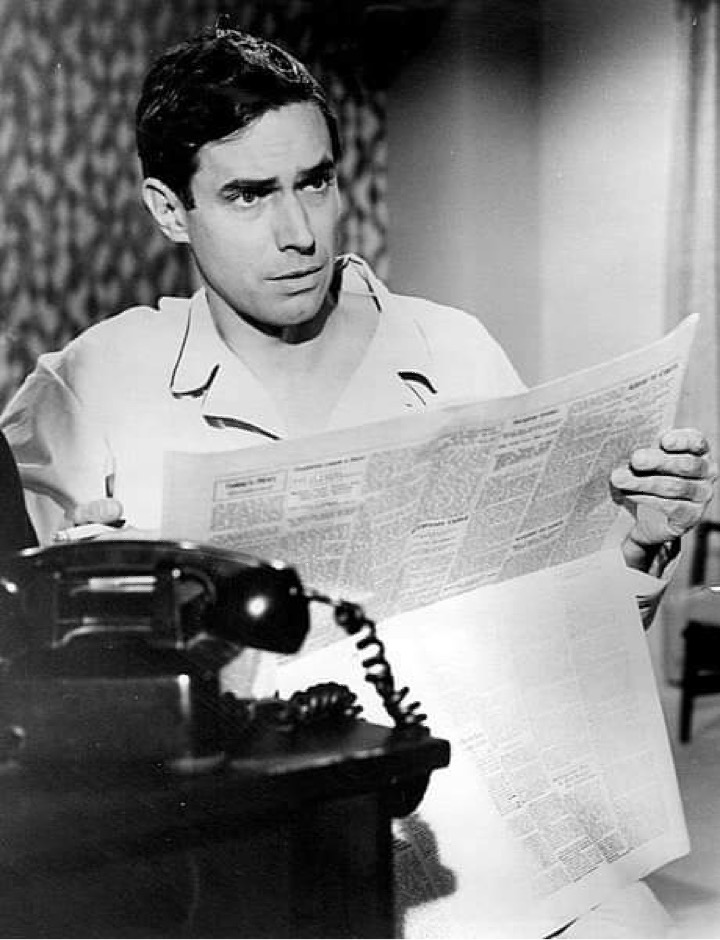
Actor Bradford Dillman, born April 14, 1930 was a Yale graduate who also served in the Marine Corps. During his long career he appeared on Broadway, in films, and in many television shows over a 30 year span. He wrote “Bradford Dillman sounded like a distinguished, phony, theatrical name – so I kept it.”
Image via Wikimedia Commons, no known copyright, public domain in the US.
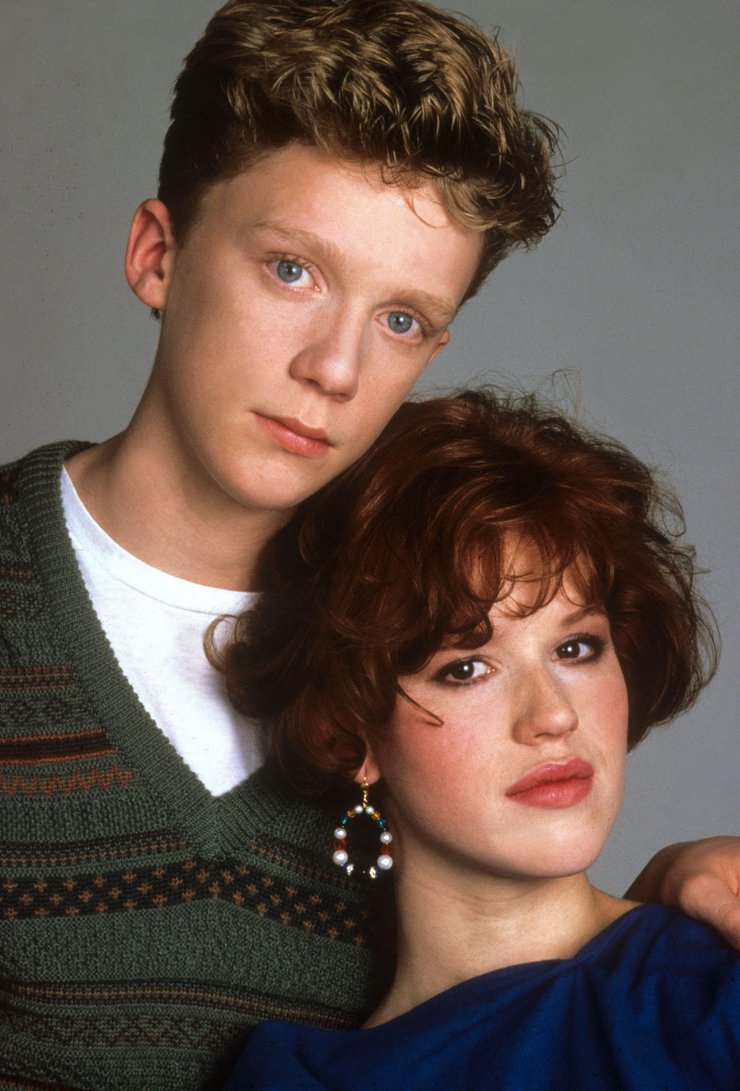
On April 14, 1968, American actor Anthony Michael Hall was born in Boston, Massachusetts.
After appearing in TV commercials, Hall started acting in a Steve Allen play in the late 1970s.
Image of Anthony Michael Hall & Molly Ringwald for the 1984 film Sixteen Candles
via Alamy
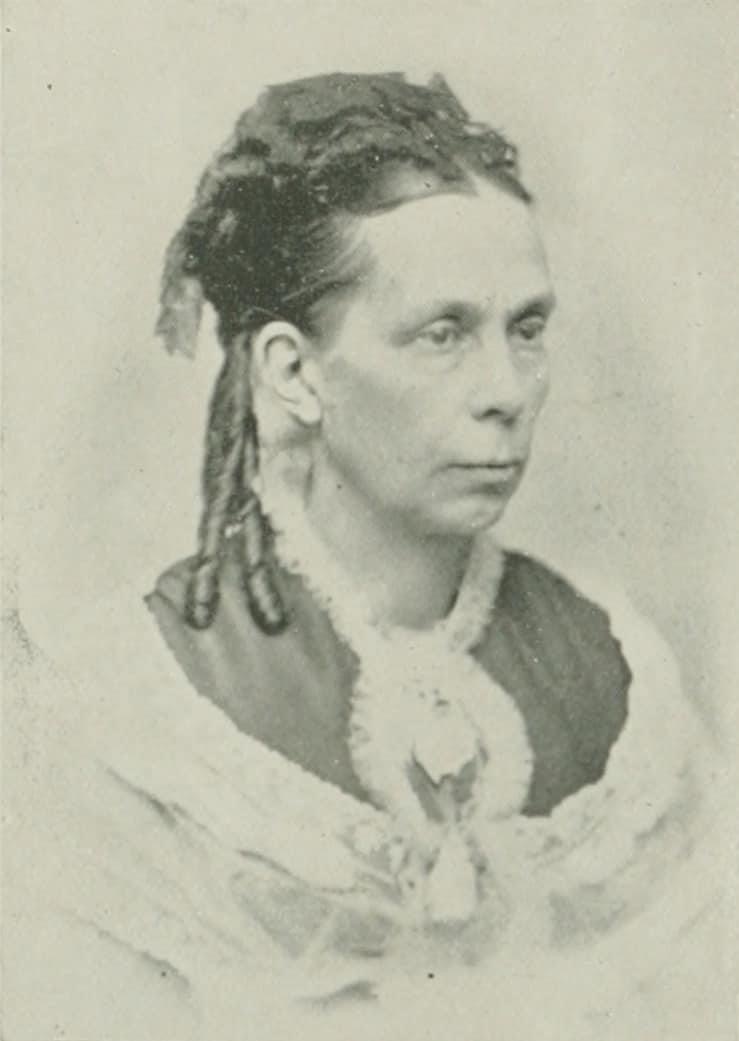
SPRAYS FROM THE HEART’S FOUNTAINS
O, THIS is a world of glorious things ;
And I’m sure I know not why,
But there’s never a gleam the sunlight flings,
Or a flash in the open sky,
But giveth my spirit an angel’s wings,
And biddeth it soar on high.
The flowers come out to the laughing light.
And their fragrance widely fling —
The shrubs with their morning gems are bright,
And the notes of the wild birds ring
As if thay had caught from the skies last night.
The songs that the angels sing.
The proud ship skims o’er the sleeping lake, With her banners streaming fair ;
And the music that children’s voices make, Is abroad on the ringing air,
That seems as its burdened chords must break, With the gladness everywhere.
And O, methinks that around me stray Bright spirits from worlds unknown,
Who over the earth, with the breaking day, Have their garlands of beauty thrown,
And the peerless gems from their own array, On the gleaming branches strown.
Tis a blest, bright world, and I know not why
They have called it a vale of woes.
For scarce can the weariest sleeper’s eye
To its beauties half unclose. Ere his soul is tuned to an anthem high
And his heart with joy o’erflows.
‘Tis a world of light and life and love.
Wherever the foot may stray, In the thronged school-yard, or the distant grove,
Where the chainless waters play.
A halo that claimeth its birth above,
Is over our blissful way.
By the wings of the angels, hour by hour,
Must the vaulted skies be riven.
For the gifts they bear are a ceaseless shower;
And though we have no vision given Of the world unseen, there can scarce be more
Than a step ‘twixt us and heaven.
by American author and teacher Harriett Ellen Grannis Arey who was born on April 14, 1819 in
Cavendish, Vermont
Source: Household Songs and other poems, published in 1855
Source says not in copyright
https://archive.org/details/householdsongsot01arey/page/48/mode/1up?view=theater
Image via Wikimedia Commons, public domain

